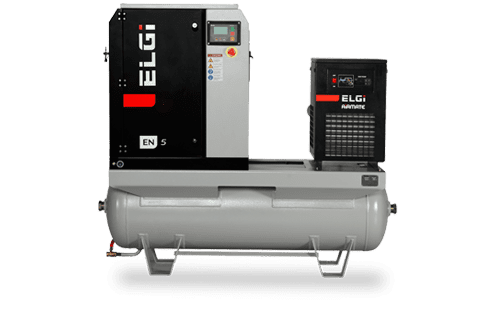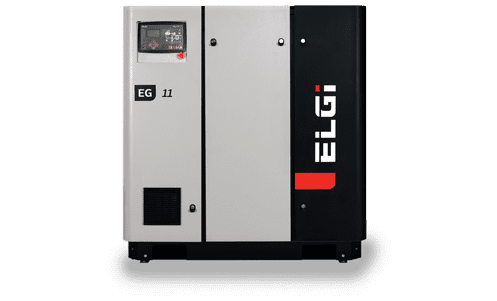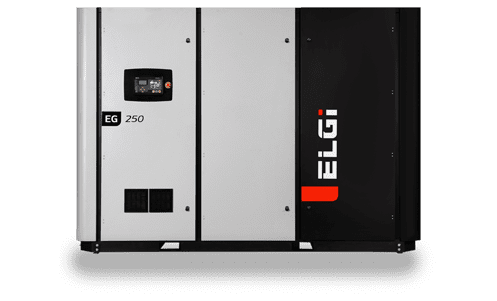Two-Stage Piston vs. Single-Stage Air Compressors
Making the right choice between single-stage and two-stage air compressors is crucial for businesses. Piston air compressors, integral in various industries from automotive repair to manufacturing, demand careful selection to avoid in efficiencies or equipment failure. This guide aims to illuminate the key differences, applications, and advantages of single-stage and two-stage air compressors.
Understanding Air Compressors
Air compressors are machines designed to convert.This process involves drawing in ambient air, compressing it, and then releasing it in a controlled manner to power various tools and machines. The versatility and efficiency of piston air compressors make them essential in numerous applications, from simple tasks like inflating tires to complex industrial processes.
What Is a Single-Stage Air Compressor?
Definition and Mechanism
A single-stage air compressor is a type of piston air compressor that compresses air in one stroke. The process involves several key steps:
Air Intake :
Air is drawn into the compressor through a filtration system, ensuring cleanliness.
Compression :
The air then enters a cylinder where a single piston compresses it, usually to about 120 psi.
Storage :
After compression, the air is directed to a storage tank, where it's held until needed for various tools and applications. Applications and Suitability
Single-stage compressors, such as the single-stage reciprocating air compressor or single-stage piston compressor, are typically used in less demanding environments where air pressure requirements are lower. They are ideal for small businesses, home garages, and DIY enthusiasts due to their simplicity and cost-effectiveness.
What Is a Two-Stage Air Compressor?
Definition and Mechanism
A two-stage air compressor, or double stage piston compressor, performs a more complex function:
First Compression Stage :
Air is drawn in by a larger piston and compressed to an intermediate pressure level.
Second Compression Stage :
This partially compressed air is then transferred to a smaller cylinder where it undergoes further compression, often reaching around 175 psi.
Cooling and Storage :
Before being stored in the tank, the air is cooled, reducing moisture.The storage tank holds the high-pressure air until it's needed.
Two-stage compressors, like the two-stage industrial air compressor or industrial piston compressor, are designed for more demanding and continuous applications. They are commonly found in industrial auto body shops, and places where high-powered tools are in constant use.
Key Differences Between Single-Stage and Two-Stage Compressors
The primary distinction between these two types of compressors is the number of times the air is compressed before storage:
Single-Stage Compressor : Air is compressed once ,suitable for lower pressure requirements and intermittent use.
Two-Stage Compressor : Air is compressed twice, resulting in higher pressure. This makes it ideal for heavy-duty, continuous applications. Additionally, 2 stage piston compressors tend to be more efficient under heavy loads and provide a more consistent supply of compressed air.
ELGi’s Reciprocating Compressors
The primary distinction between these two types of compressors is the number of times the air is compressed before storage:
Single-Stage Compressor : These compressors are perfect for small-scale applications. They offer reliability, and efficiency, and are easy to maintain, making them ideal for businesses that require a dependable air supply but not at high pressure.
Two-Stage Compressor : ELGi's two-stage piston compressors are engineered for performance and durability. They are particularly suited for industries that demand constant high-pressure air. These compressors are built to handle rigorous, continuous operations, and they stand out in terms of energy efficiency and longevity. .
Why Choose ELGi Compressors?
- ELGi compressors feature a sturdy construction, ensuring long-lasting performance.
- Incorporating high-efficiency motors, they offer significant energy savings.
- They are designed to meet global safety standards, ensuring workplace safety.
- ELGi ai compressors cater to various industry needs, from automotive to heavy manufacturing.
Conclusion
The choice between single-stage and two-stage piston compressors depends on the specific requirements of pressure and frequency of use. Single-stage compressors are suitable for less frequent tasks, while two-stage compressors are ideal for industrial, high-demand ELGi's range of compressors, known for their reliability and efficiency, provides options to meet any compressed air needs effectively.





